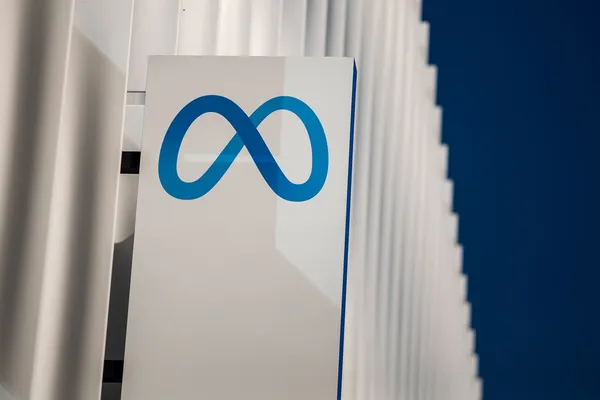Meta Lures Apple’s Silicon Executive With Massive $200 Million Compensation Package
Meta has recruited Apple’s top silicon engineering talent, Charles Pang, by offering a compensation package exceeding $200 million—an aggressive move underscoring Meta’s ambition to dominate the next era of custom chips and AI hardware.
In a bold and high-stakes talent acquisition, Meta Platforms Inc. has successfully recruited Apple’s top chip design executive, Charles Pang, with an eye-popping compensation package reportedly worth over $200 million. The move marks one of the most aggressive poaching efforts in the history of Silicon Valley and signals Meta’s determination to take control of its future in custom hardware and AI infrastructure.
Pang, who played a critical role in developing Apple’s M-series silicon chips and other proprietary processors that power the iPhone, iPad, and Mac, has been at the forefront of Apple’s shift away from third-party chips. His defection to Meta is seen as a strategic coup that could reshape the competitive dynamics in advanced chip engineering. A $200 Million Statement
According to people familiar with the matter, Meta offered Pang a combination of stock grants, bonuses, and long-term equity incentives that totaled more than $200 million—far beyond typical executive pay packages in the tech sector.
The extraordinary offer highlights the intensifying war for elite semiconductor talent as tech giants race to build proprietary AI and AR/VR systems. Industry insiders say Meta’s offer was designed not only to outbid Apple, but to ensure Pang would remain with the company through the critical phases of developing next-generation processors for its Reality Labs division and data center infrastructure. “Meta isn’t just buying talent—they’re buying leadership in chip innovation,” said Patrick Moore, a semiconductor analyst at ARK Strategies.
“This signals how seriously Meta is taking the arms race in custom silicon. ”
Meta’s Chip Ambitions Take Center Stage
Meta has spent the past few years quietly building its own in-house chip program to support its long-term ambitions in artificial intelligence, machine learning, and metaverse technologies. While the company remains heavily reliant on third-party chips from Nvidia and Qualcomm, the hiring of Pang is part of a broader shift toward vertical integration.
Last year, Meta unveiled its internally developed AI inference chip and a new custom ASIC designed for video processing—early signs of its push to reduce dependence on external vendors. Pang’s arrival is expected to accelerate the development of a powerful new line of chips tailored to Meta’s massive AI workloads and immersive devices. Apple’s Loss Is Strategic, Not Just Symbolic
For Apple, Pang’s departure is a rare and significant loss.
Widely regarded as a key figure behind Apple’s silicon leadership, Pang helped build the teams that created the M1, M2, and M3 chips, which allowed Apple to ditch Intel and dramatically improve performance and battery efficiency across its devices. While Apple is known for retaining top engineering talent through a mix of secrecy, loyalty, and generous stock awards, the sheer scale of Meta’s offer reportedly made it impossible to match. According to Bloomberg, internal efforts to retain Pang fell short despite multiple counteroffers.
The loss comes at a time when Apple is facing increased pressure to advance its own AI capabilities. Pang’s exit could slow development in areas where Apple is trying to keep pace with generative AI innovation. The Broader Talent War in Silicon Valley
Pang’s high-profile jump is just the latest in a growing pattern of aggressive hiring among major tech firms trying to build in-house chip and AI design units.
Google, Amazon, Microsoft, and Meta are all racing to create their own silicon for AI inference and training—part of a strategic pivot away from reliance on Nvidia and other chip giants. In 2023, Nvidia’s skyrocketing valuation, chip shortages, and export controls further incentivized Big Tech to invest in custom chip projects. These initiatives require not just capital, but elite technical leadership—making seasoned veterans like Pang highly coveted.
“Engineers like Pang are rockstars now,” said Anita Ghosh, a recruiter specializing in semiconductor leadership. “Companies are willing to spend hundreds of millions because the ROI on chip efficiency and performance at scale is worth billions. ”
Long-Term Implications for Meta and the Industry
Pang’s arrival at Meta is likely to accelerate the company’s ability to build AI-specific chips tailored to its unique workloads, including recommendation algorithms, content moderation, and immersive computing for AR/VR platforms.
Meta has faced criticism for its massive spending on the metaverse, but this move indicates a doubling-down on the underlying infrastructure that will power its long-term vision. Analysts say if Meta can successfully reduce dependency on Nvidia GPUs and replace them with in-house silicon, it could unlock both performance gains and long-term cost savings. “Control over your chip architecture is control over your AI destiny,” said Moore.
“This is where the next tech giants will be made—or unmade. ”
Conclusion: A Power Play in Silicon Valley's New Arms Race
Meta’s $200 million bet on Charles Pang is more than a recruitment win—it’s a declaration of intent. As the AI arms race intensifies and custom silicon becomes the new frontier in tech innovation, the battle for elite talent is reaching unprecedented levels.
With this hire, Meta sends a clear message to Apple, Nvidia, and the rest of the industry: it’s willing to spend big, move fast, and reshape the hardware foundations of the future—all from the inside out.




